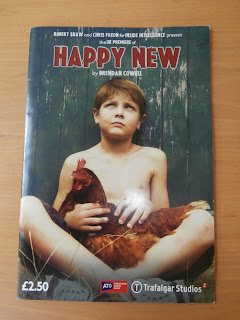Since my days of acting in and directing ‘amdram’ plays, I’ve been fascinated by the backstage
process, and I’d applied a few times to attend recording sessions at the BBC
Radio Theatre. At last I succeeded in gaining tickets to two programmes in the ‘With Great Pleasure’ series, recorded on July 7th.
Maybe the fact that the Wimbledon Men’s Final was played on
that day played helped my luck with the ticket allocation. Although we arrived a half hour early,
the café ‘holding’ area was packed and our tickets were numbered 2003 and 2004. We
were among the last to be called and just about managed to squash into gallery seats.
Celebrities in turn select favourite pieces of poetry and prose, interspersed with reminiscence about their own careers. Hannah Gordon was first – a tiny Scotswoman I
remembered from ‘Watercolour Challenge’, a programme I was addicted to when it
first aired. Contestants painted scenes in UK beauty spots for five
afternoons, overseen by Gordon, and on the Friday an expert awarded a prize of
a box of paints.
The chosen poems, and details of Gordon’s experience at a
dour boarding school, were delivered in her characteristically gentle
style, although the opening poem, ‘Albert and the Lion’, read by Michael Pennington, needed a more robust
sense of humour.
Each celebrity is accompanied by two readers, which in Gordon’s case were Pennington and Eleanor Bron. Their voices admirably suited poems, by Wendy Cope, Noel Coward
and Siegfried Sassoon. Gordon herself
read a charming anecdote from Willy Russell’s ‘Shirley Valentine’, called ‘Nativity
Play’.
Extracts from Neil Gaiman’s ‘Anansi Boys’, Dickens ‘Dombey
and Son’ and Shakespeare’s ‘Othello’
were all well received, as was Jude Adekediki reading an extract from Nigerian novelist Chinua
Achebe’s ‘Things Fall Apart’.
I like the strong contrast between the two sets of extracts and the presenters –one subtle, heart-warming and gently humorous, the other more vividly dramatic, and more political.
I listened to the first of the series last Monday afternoon,- Lenny Henry's programme - and enjoyed it as much at the second hearing.
What you don't get from the broadcast performance, though are the ‘fluffs’ -the bits that have to be re-recorded because the actors have stumbled over their words.
Efficient female producer Mary Ward Lowery, took notes and made the cast repeat their
lines - remarkably few of them in fact, although I felt sorry for the young actor who struggled with Achebe's convoluted prose style. At a stroke the seemingly confident performers who, moments before, commanded the stage, became schoolchildren forced to repeat lines until they got them right.
'It sounds a bit flat,' remarked Hannah Gordon about one of her repeats . The producers's reply was brisk: 'Well, liven it up then!'. I thought this was one of the most enjoyable afternoons of the year so far.









